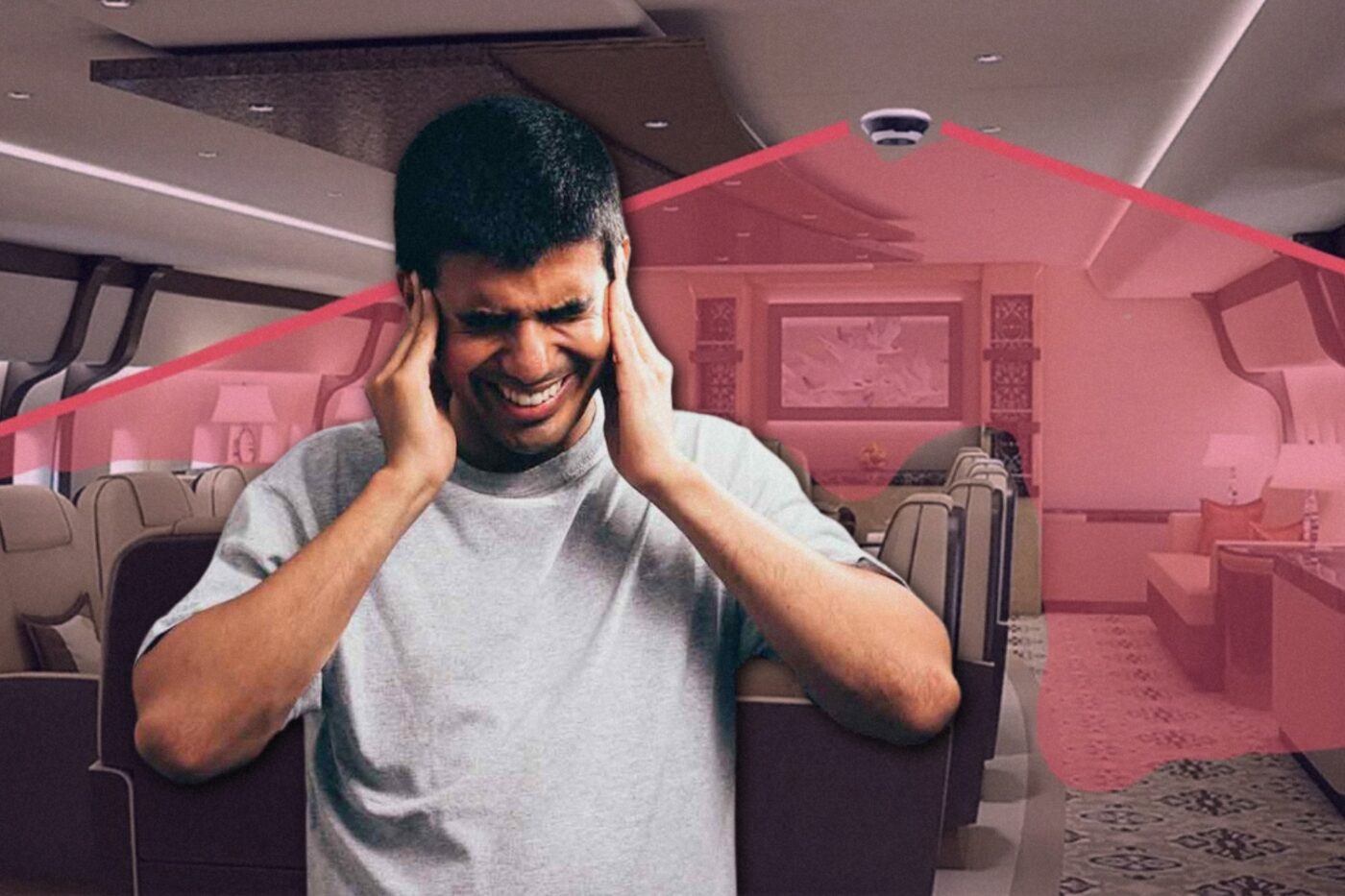Breakthrough AI tech from the University of Sao Paulo promises to silence aeroplane engines, transforming the air travel experience with futuristic cabin designs.
While talk of space-age ‘mega planes’ and supersonic hydrogen jets is all well and good, the average traveller has far more mundane considerations on their mind that they would love to see cutting-edge tech come in and fix for them. Among those, undoubtedly, is the never-ending drone of jet engine noise. If you’re one of those who can’t stand the din, you might be in luck.
It seems that the aviation industry could be on the cusp of a major transformation, driven by groundbreaking advancements in cabin design and technology. The 2024 Crystal Cabin Awards have spotlighted some of the most innovative concepts set to elevate the passenger experience, from enhanced social hubs in economy class to revolutionary noise-cancelling technology.
Enhanced Comfort Cabins
This year’s awards put forward a variety of concepts aimed at improving comfort and convenience for passengers across all cabin classes. Among the most eye-catching was Ameco’s ‘Fly-Buddy Hub’, a versatile social space that allows two rows of economy seats to be rearranged and make room for six passengers to face each other.
Designed for families and business groups, this space can even convert into a bed, offering a genuinely unprecedented level of flexibility and comfort for economy.

Another design of note was Diehl Aviation’s Wellbeing Zone, developed in partnership with Qantas for the airline’s ambitious “Project Sunrise” flights. These ultra-long-haul journeys, connecting Sydney with London and New York, will feature a dedicated area between premium economy and economy cabins. This space is designed to help passengers stretch, move around, and stay refreshed during the 25-jour flights, addressing the increasing physical challenges of such lengthy travel.

Noise Cancellation In Aviation
However, perhaps the most revolutionary advancement highlighted at the awards was the University of Sao Paulo’s aircraft-wide noise-cancelling device, developed in cooperation with Embraer. This tech represents a potentially massive leap forward in in-flight comfort, promising to eliminate the constant hum of aeroplane engines without the need for individual headphones or waxy earplugs.
Using artificial intelligence and an onboard camera system, this device directs sound waves directly at passengers’ heads, counteracting the noise from the engines. The system’s ability to adapt to different seating arrangements and passenger movements ensures a consistent and quiet environment throughout the flight… or so the designers say.

Not only does this enhance comfort but also opens up new avenues for in-flight entertainment and communication as passengers can enjoy a quieter cabin experience without the pollution of engine noise. As well as limiting passenger fatigue and stress, the elimination of individual noise-cancelling headphones could streamline cabin operations and significantly reduce airline waste.
All in all, the innovations showcased at the awards underscore a growing trend towards making air travel more comfortable, social, and sustainable. As these concepts move from design to reality, passengers can look forward to a future where the journey is just as enjoyable as the destination… climate-change-induced turbulence pending.
